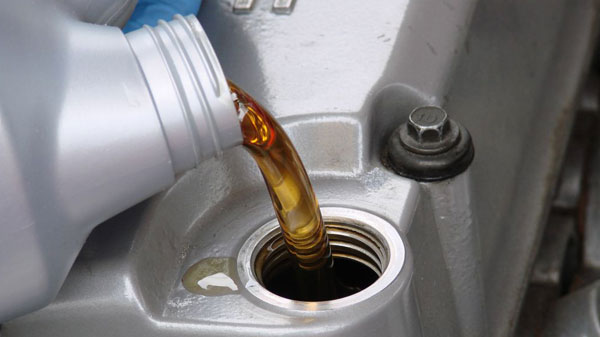Oil and grease can be one of the Owner Operators biggest headaches. There are many brands and they all say they are the best; that’s what marketing people do. There are standards that an oil must meet to get API certification, and as long as the oil has that, one’s probably as good as the next.
I will say the major oil companies have more resources to put into research to help oil do a better job. Additives that clean, reduce acids, and other things that you don’t even think about, are part of what’s called the Additive Package. Every oil has an additive package, sometimes called the TBN or Total Base Number. This is the measurement of how well the oil will handle contaminants; the higher the number the better.
Getting the oil changed has been an issue for some. Do you change at 10,000 miles, 15,000, 25,000, or more? Following the engine manufacturer’s recommended change interval is the best using a good mineral oil. A good oil analysis program is a good idea. It will let you know if you have a problem developing. The thing about oil is it never wears out; it gets dirty. When you change the oil at a random mileage it’s either dirty and you have done some damage to the engine, or it’s still clean and you’re throwing away good oil. That’s why oil analysis should be used to decide when to change the oil. They check for wear metals, fuel dilution, coolant contamination, the additive package, viscosity and TBN. It’s a blood test for your engine, worth every penny, and could save you lots of money.
A bypass oil filtration system is also a good idea, even if you don’t extend the drain intervals, which you could, it will keep your oil cleaner. The filters on the engine usually filter down to about 25 microns, the typical bypass filters down to 3 or 4 microns, and some even smaller. Engine damaging particles are 5 to 6 microns in size, so the bypass filter takes out the damaging sized contaminates, thus reducing engine wear. Most bypass system manufacturers have an oil analysis program. By extending the drain intervals one could change to synthetic oil.
Synthetic oil is a higher quality lubricant using mineral oil as base. Using synthetic oil will allow the engine or gearbox to run with less friction, increasing fuel economy as a result. Most trucks have synthetic oil in the transmission and the differentials from the factory.
Synthetic grease is built by engineers the same as the oil, using a lithium base instead of mineral oil. Higher quality, lower friction equals longer lasting parts and lower maintenance costs.
Using synthetic oils and greases can extend the service intervals of a truck, but use your best judgment. The synthetics are usually three times higher in cost than their mineral brothers. That is why a bypass filter and oil analysis program could extend the life of your oil. I know of people who haven’t changed their oil in 300,000 miles, change the filters, top off the sump, and your good to go. That’s not changing the oil for more than two years. Think of the money saved, not to mention the environmental impact of not having to dispose of the used oil. The chassis still needs to be greased but that’s no big deal; use synthetic grease for less wear.
For me, synthetic oil and grease and a bypass filter system are no brainers. Read your owners manual and decide for yourself.
